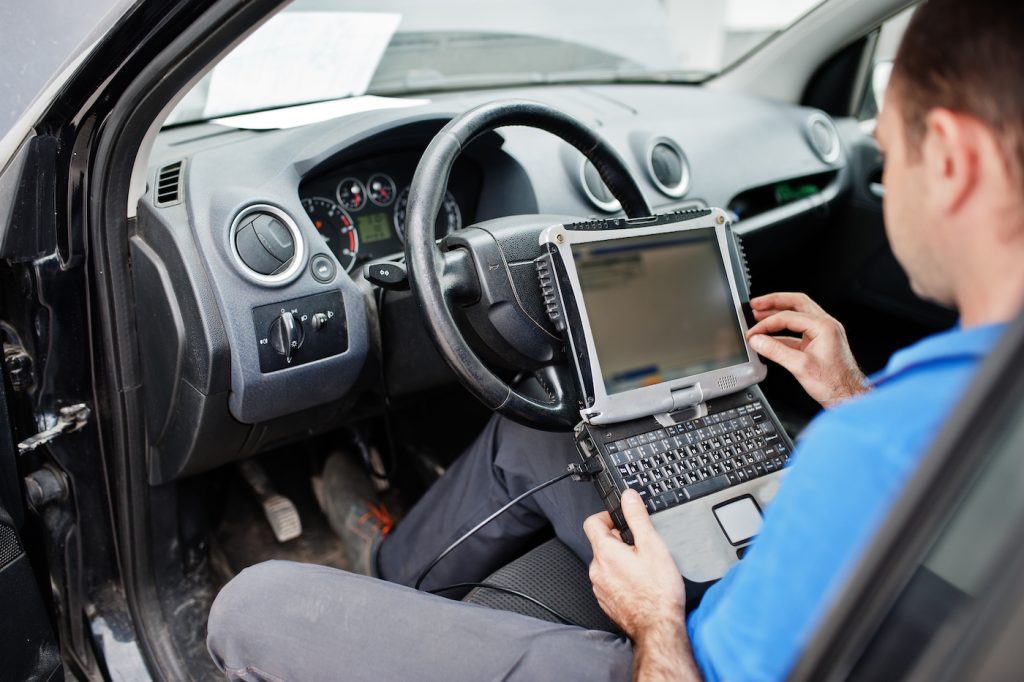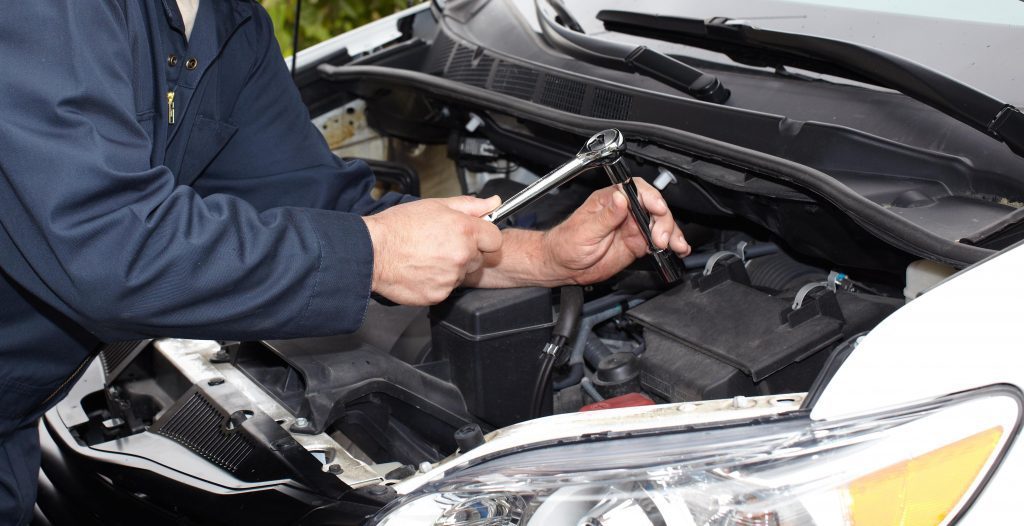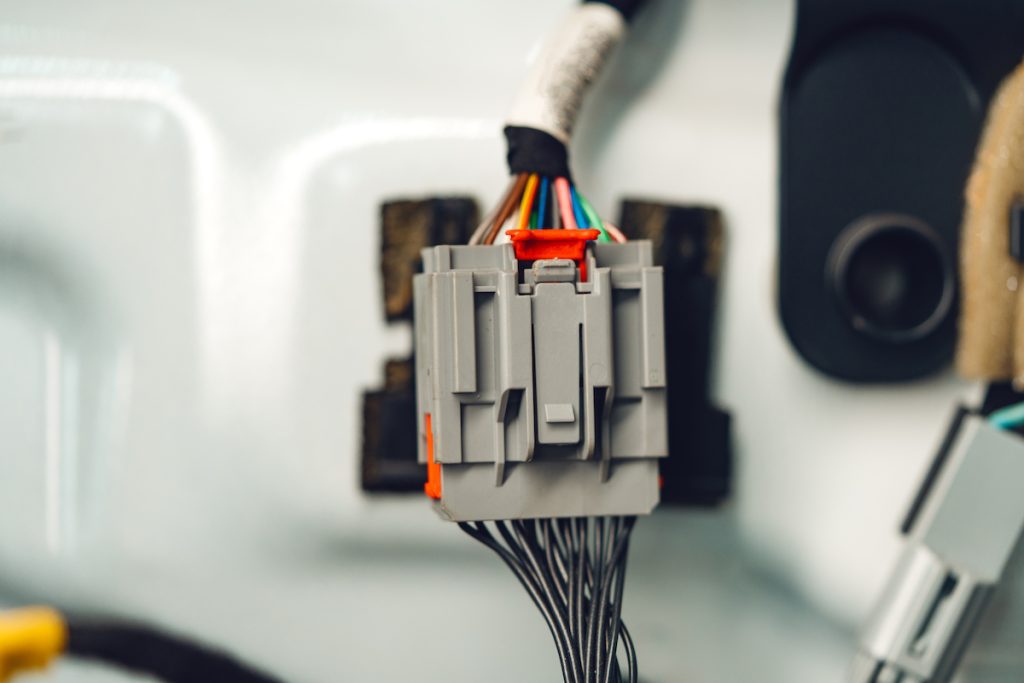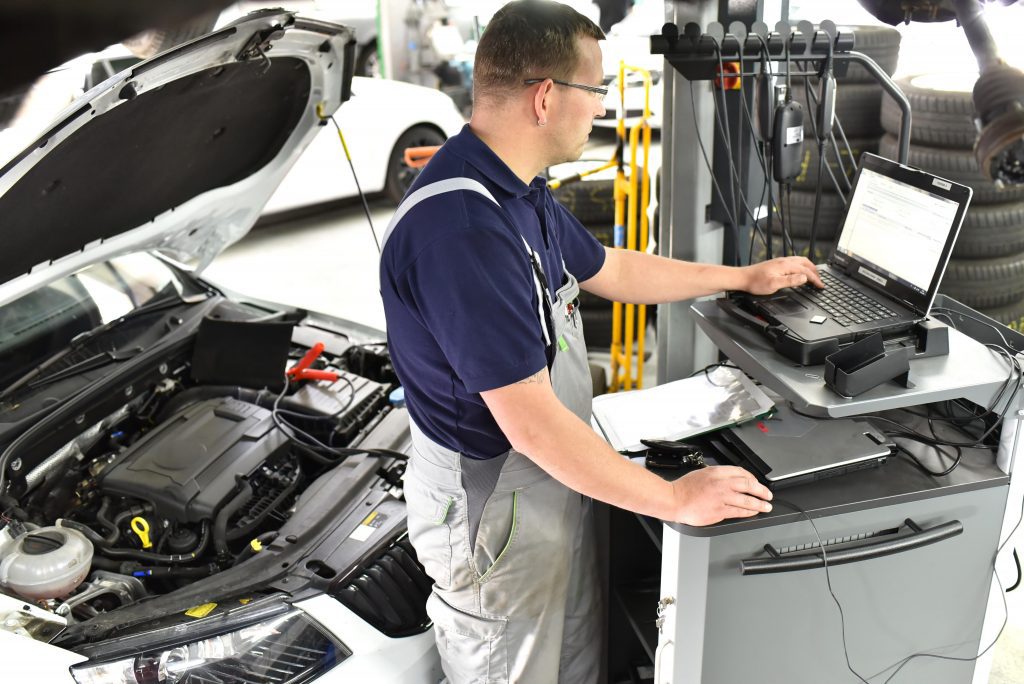6 Tips For Car Computer Repair
In today’s fast-evolving automotive landscape, the importance of the vehicle’s electronic systems cannot be overstated. At the heart of these systems lies the car’s computer, formally known as the Engine Control Unit (ECU), which monitors and controls critical functions to ensure optimal performance. With the increasing reliance on these sophisticated electronics, understanding the nuances of Car Computer Repair has become essential for every car owner. In this article, we delve into the world of automotive diagnostics and repair, providing you with invaluable Car Computer Repair tips to keep your vehicle running smoothly. Whether you’re a seasoned mechanic or a curious car enthusiast, these insights will help you navigate the complexities of modern vehicle maintenance with confidence.
5 Common Signs Something is Wrong With Your ECU
When it comes to the health of your vehicle, the Engine Control Unit (ECU) is the brain behind operations, controlling everything from fuel efficiency to the timing of spark plugs. Recognizing the signs of a failing ECU can save you from costly repairs and maintain your car’s performance. Here are five common indicators that something might be wrong with your ECU:
- Check Engine Light: The most obvious sign of an issue with your ECU, or any other critical electronic components, is the illumination of the check engine light on your dashboard. This warning light is connected to the car’s diagnostic systems, which the ECU monitors. When the ECU detects a problem, whether it’s a bad sensor, a problem with the fuel ratio, or issues with the Catalytic Converter, it triggers this light as a warning message to the driver.
- Poor Fuel Economy: If you notice a sudden drop in fuel efficiency, it could be due to improper management of the fuel system by the ECU. Auto manufacturers design the software components of the ECU to optimize fuel efficiency. However, if there’s an error in these software components or advanced technology, it can lead to increased fuel consumption and drivability issues.
- Rough Idle or Engine Misfires: An ECU that’s not functioning correctly can cause your vehicle to idle roughly or even misfire. This is often due to incorrect timing of the spark plugs or poor fuel ratio adjustments. The ECU’s role in managing the electronic components that control these functions is critical, and any discrepancies can lead to noticeable performance issues.
- Unpredictable Performance or Drivability Issues: If your car starts exhibiting erratic behavior such as sudden stalling, jerking, or difficulty accelerating, it could be a sign of ECU trouble. These drivability issues often stem from incorrect commands sent by the ECU to various parts of the vehicle, affecting its overall performance and fuel efficiency.
- Warning Messages or Diagnostic Codes: Modern vehicles are equipped with advanced diagnostic systems that not only trigger warning lights but can also provide specific diagnostic codes. These codes can be read with an OBD-II scanner and offer insights into specific issues, including those related to the ECU, Catalytic Converter, spark plugs, and other auto computers and electronic components. A diagnostic code pointing to a “bad sensor” or “fuel ratio” issue can often be traced back to ECU malfunctions.
Identifying these signs early and consulting with a professional for a thorough diagnostic can prevent further damage to your vehicle’s ECU and associated systems, ensuring your car continues to operate efficiently and reliably.

Car Computer Repair Tip 1: Diagnose Accurately
Diagnosing car issues accurately is paramount in ensuring the longevity and peak performance of your vehicle. The heart of modern auto diagnostic processes lies in leveraging the powerful technology of OBD-II (On-Board Diagnostics) scanners. These sophisticated devices interface directly with the onboard computers that monitor and control the vehicle’s electronic systems, playing a crucial role in the proper operation of your car.
When connected, an OBD-II scanner reads the diagnostic codes generated by the vehicle’s electronic & diagnostic repair systems. These codes are critical components of the vehicle’s self-monitoring capabilities, designed to identify and alert the driver to issues ranging from minor concerns to potential system failures. Each diagnostic code provides specific information about problems affecting the car’s subsystems, such as the engine, transmission, exhaust system, and more, pinpointing the exact area that requires attention.
Understanding the diagnostic codes retrieved by the OBD-II scanner is essential for any effective repair strategy. These codes eliminate the guesswork traditionally associated with car repairs, allowing for a precise and focused approach to troubleshooting. By identifying the exact nature and location of a problem, auto repair professionals and knowledgeable vehicle owners can address the underlying issues more effectively, ensuring that repairs are both accurate and efficient.
Furthermore, the advanced technology of OBD-II scanners not only aids in diagnosing existing problems but also plays a preventive role by identifying issues that could lead to major repairs if left unaddressed. Regular checks with an OBD-II scanner can reveal early signs of wear and tear on critical components, allowing for timely maintenance and repairs that keep the vehicle in optimal condition.
The use of reliable OBD-II scanners in auto diagnostic processes is indispensable. These devices empower vehicle owners and repair professionals alike with the information needed to maintain the complex electronic systems of modern cars, ensuring their peak performance and prolonging their lifespan. By accurately identifying and addressing issues, drivers can enjoy the reassurance that their vehicle remains safe, efficient, and reliable for the road ahead.

Car Computer Repair Tip #2: Stay Updated with Software
Staying updated with software is an integral aspect of modern vehicle maintenance, akin to the regular updates we perform on our computers and smartphones. Vehicle manufacturers frequently issue automobile updates designed to enhance the performance of key components or to rectify known bugs within the system. These updates are essential for ensuring that your car’s electronic control unit (ECU), the brain behind your vehicle’s operations, functions at its best.
The process of updating your vehicle’s ECU software can vary in duration, typically requiring anywhere from 2-3 hours. This time is well-invested, as updates can lead to noticeable improvements in fuel efficiency, engine performance, emission control, and even the functionality of electronic systems such as infotainment and navigation. Moreover, software updates can also introduce new features that were not originally included with your vehicle, providing an enhanced driving experience.
Automobile updates are distributed by vehicle manufacturers directly, often as part of scheduled service visits to authorized dealerships or service centers. However, with advancements in technology, some manufacturers now offer the capability for owners to download and install updates directly to their vehicles via Wi-Fi, making the process more convenient than ever.
It is crucial for vehicle owners to proactively check for available updates for their car’s ECU software. Ignoring these updates can result in running outdated software that may not optimally control the engine and other key systems, potentially leading to decreased performance and increased wear on the vehicle over time.
Regularly checking and applying software updates is a critical maintenance task that vehicle owners should not overlook. By keeping your car’s software up-to-date, you ensure that your vehicle runs efficiently, securely, and with all the latest enhancements and fixes provided by the manufacturer. This not only contributes to a better driving experience but also helps in maintaining the vehicle’s value and longevity.

ECU Repair Tip #3: Use Quality Replacement Parts
When it comes to repairing the sophisticated systems within your vehicle, especially the car’s computer or its associated sensors, the choice of replacement parts plays a pivotal role in ensuring the longevity and reliability of the repair. Opting for OEM (Original Equipment Manufacturer) parts or high-quality aftermarket options is not just a recommendation; it’s a necessity for maintaining the vehicle’s performance and safety standards.
OEM parts are manufactured by the vehicle’s original manufacturer or its authorized suppliers. These parts are designed to match exactly what was installed in your vehicle when it was built, ensuring a perfect fit and optimal performance. They come with the assurance of quality, backed by the vehicle manufacturer’s warranty, and are often recommended by vehicle manufacturers for maintaining the integrity of the vehicle’s systems.
High-quality aftermarket parts, on the other hand, are produced by companies other than the original manufacturer. While aftermarket parts can vary in quality, reputable suppliers offer high-quality alternatives that can match or even exceed the performance of OEM parts. These parts can offer a more cost-effective solution without compromising on quality, provided they are sourced from reputable manufacturers known for their reliability and compatibility with specific vehicle models.
Using inferior replacement parts, whether for the car’s computer, sensors, or other critical components, can have detrimental effects on the vehicle’s performance. Low-quality parts may not meet the specifications required for proper operation, leading to compatibility issues, decreased fuel efficiency, and potentially causing further damage to the vehicle’s systems. Additionally, they may wear out more quickly than their high-quality counterparts, resulting in more frequent repairs and higher long-term costs.
Moreover, the installation of substandard parts can void warranties and decrease the resale value of the vehicle. It’s essential to consider the long-term impact of using inferior parts, not just the upfront cost savings.

ECM Repair Tip #4 Get Professional Help
Seeking professional help for car computer repairs is not just an option; it’s often a necessity due to the intricate nature of automotive electronics. While a skilled DIY enthusiast may handle basic maintenance and minor repairs, the complexity of modern vehicle computer systems usually demands the attention of experienced technicians. These systems control almost everything from engine management to drivability concerns, and diagnosing issues within them requires a deep understanding of the vehicle’s intricate electronic networks.
When searching for the right auto shop, it’s imperative to select one that not only offers expert assistance but also specializes in automotive electronics or caters specifically to your vehicle’s make and model. Such specialization ensures that the technicians have the specific knowledge and tools required to accurately diagnose and repair issues, adhering to the manufacturer’s standards.
Experienced technicians in these specialized shops are well-versed in handling the latest advancements in auto care services, including regular evaluations of car computers and electronic systems. They have access to the manufacturer’s latest diagnostic software and tools, which are essential for accurately pinpointing and addressing complex issues. This expertise is crucial for resolving drivability concerns that might not be evident without a thorough understanding of the specific vehicle’s systems.
Moreover, professional auto care services can provide regular evaluations of your vehicle’s computer system, offering preventive maintenance to avoid future problems. These evaluations can identify potential issues before they escalate into major repairs, saving you time and money in the long run.
For repairs and maintenance involving the car’s computer or associated electronic systems, relying on expert assistance from an auto shop with experienced technicians is essential. Such professional care ensures that your vehicle receives the accurate diagnosis and specialized treatment it needs to maintain optimal performance and drivability. Always prioritize finding a service provider that specializes in your vehicle’s specific make and model, as this expertise is key to the longevity and reliability of your car.

Car Computer Repair Tip #5: Protect Against Electrical Issues
Protecting your vehicle’s electronic systems, especially the ECU (Engine Control Unit), from electrical issues is a critical step in ensuring the longevity and optimal performance of your car. The ECU is the brain behind many of your vehicle’s functions, from managing fuel injectors to ensuring the smooth operation of on-board computers. Given its importance, safeguarding the ECU from potential electrical surges is essential whenever you’re performing repair work or even minor tweaks.
One of the most effective measures to prevent accidental damage to the ECU and other sensitive electronic components is to disconnect the battery before starting any repairs. This simple step helps to ensure that no unintended electrical currents can flow through the vehicle’s systems while you’re working on them. Electrical surges, even minor ones, can cause significant damage to the ECU, leading to costly repairs or replacements and potentially impacting the vehicle’s performance.
By disconnecting the battery, you not only protect the ECU but also preserve the intricate network of on-board computers that rely on the ECU for proper function. These systems are designed to work in harmony, and any disruption caused by an electrical surge could result in a domino effect, impacting various aspects of your vehicle’s performance. From the precision timing of fuel injectors to the overall efficiency and reliability of the engine, every aspect of optimal car performance is dependent on the health and integrity of the ECU and related electronic systems.
Taking this precautionary step also provides peace of mind, allowing you to focus on the repairs or adjustments at hand without the worry of inadvertently causing electrical damage. Whether you’re making minor tweaks to improve performance or undertaking more significant repairs, the protection of your vehicle’s electronic components is paramount. This approach underscores the importance of careful handling and respect for the complex electronics that underpin modern automotive technology, ensuring that your vehicle continues to operate at its best.

Repair Tip #6 Understand the ECU’s Role in Performance Tuning
The Engine Control Unit (ECU) serves as the central nervous system of your vehicle, meticulously managing and monitoring a wide array of parameters essential for the car’s operation. Its role in performance tuning is both critical and transformative, offering the potential to unlock enhanced power output, improved fuel efficiency, and a more responsive overall performance. By adjusting the software settings within the ECU, tuning experts can refine the engine’s fuel injection rates, optimize ignition timing, and calibrate the air-to-fuel ratios to achieve superior performance outcomes.
Performance tuning through ECU adjustments is a sophisticated process that leverages the advanced capabilities of modern automotive technology. The adjustments made during a tuning session are tailored to the specific characteristics of your vehicle, taking into account the engine’s design, the vehicle’s intended use, and the desired performance improvements. These modifications can significantly alter how the vehicle behaves on the road, providing a more engaging driving experience and, in many cases, better fuel economy.
However, the process of ECU tuning is not without its risks. The precision required to enhance performance without compromising the engine’s integrity is immense. Improper adjustments to the ECU can lead to a range of adverse effects, from minor issues like decreased fuel efficiency to severe problems such as engine knock or complete failure. Such outcomes not only entail costly repairs but may also void vehicle warranties and reduce the lifespan of the engine.
This underscores the importance of consulting with professionals who specialize in performance tuning for your specific vehicle type. These experts possess the knowledge, tools, and experience necessary to safely modify the ECU settings, ensuring that any changes contribute positively to the vehicle’s performance without endangering its mechanical well-being. They understand the delicate balance between enhancing performance and maintaining reliability, employing diagnostic tools and software to precisely measure and adjust the engine’s parameters.
While the allure of boosting your vehicle’s performance through ECU tuning is strong, it is crucial to approach this process with caution and respect for the sophisticated engineering of your car. Engaging with professional tuners with a proven track record of safe and effective modifications can ensure that your vehicle performs better and continues to provide reliable service for years to come. Understanding the ECU’s pivotal role in this process is the first step toward achieving your desired enhanced driving experience.

SOLO PCMs is Your Friend For Car Computer Repair
Navigating the intricacies of car computer repair and optimization is no small feat. From accurately diagnosing issues with advanced OBD-II scanners to ensuring your vehicle’s software is up-to-date, choosing quality replacement parts, seeking professional help when necessary, protecting your vehicle against electrical issues, and understanding the critical role of the ECU in performance tuning, each step is vital to maintaining your car’s health and enhancing its performance. These efforts ensure that your vehicle not only runs smoothly but also meets its full potential for efficiency, reliability, and power.
Don’t let the complexities of car computer systems deter you from achieving the best possible performance and longevity for your vehicle. Visit SOLO PCMs today, and let us help you navigate the technicalities with ease and confidence. Whether you’re a seasoned auto enthusiast or simply seeking to maintain your vehicle’s health, we’re here to support all your ECU-related needs. Reach out to SOLO PCMs for all ECU needs and take the first step towards unlocking your vehicle’s full potential.




